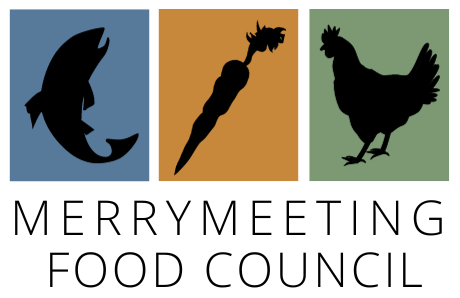As we shift into spring and the growing season, albeit slowly, things have been busy around MFC and our winter planning and work is ready to bear fruit. See our Community Nutrition Resource Guides and our Know Your Veggies booklet with recipes and information about 50 types of gleaned produce is in the final stages. Both resources aim to reduce barriers to food access for our communities.
MFC has spent the last several months asking our community about barriers to food access through interviews with individuals and organizations. At a community conversation on June 20th, MFC will share key points that we heard from you. Partners from Mid Coast Hospital, Harpswell Aging at Home, and Mid Coast Hunger Prevention Program will briefly share examples of community-based programs working to reduce food access barriers and build community. And together we can discuss a broad range of solutions.
Many of us don’t eat the foods we know we should be eating. On a daily basis, innumerable things can prevent us from doing so: lack of time for shopping, cooking, or sitting down for a meal; limited resources to divide between food, transportation, healthcare, heating and other expenses; lack of access to a space equipped to prepare a meal; the absence of a store within 10 miles that stocks fresh produce; the reluctance to seek out food or transportation assistance because we don’t want to ask for help; the list of barriers is long.
Yet, the food choices we make on a daily basis have a significant impact on our health. Center for Disease Control data shows that 66% of the population in MFC’s service area is either overweight or obese and that 82% of the population eats less than the recommended five servings of fruits and vegetables per day, with 44% eating only one or two servings per day. Maine ranks first in New England for rates of obesity and Type II diabetes. And chronic diet-related diseases including high blood pressure, high cholesterol, and diabetes are higher for individuals experiencing food insecurity.
Maine also ranks first in New England for rates of food insecurity, and the number of our community members experiencing temporary or chronic food insecurity is rising. While rates of food insecurity are dropping in most states, Maine’s rates have risen over recent years (2004-2016). One in four children in Maine is food insecure. Our food choices and subsequent well-being, regardless of the reason, have impacts throughout our communities and economy. Read more about food and healthcare...
Let’s come together as a region and community to generate solutions. Hope to see you on the 20th! Registration is free, but required so we can ensure enough food.
